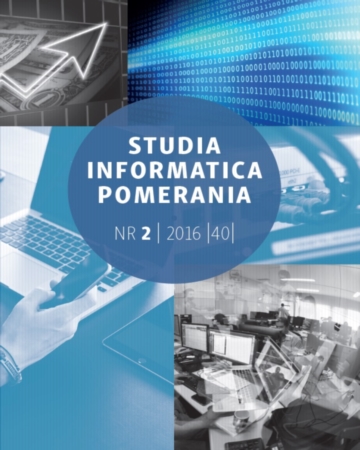
ISSN: 2451-0424
eISSN: 2300-410X
OAI
DOI: 10.18276/si.2017.46-03


Issue archive /
nr 46
Model perspektywicznego systemu e-VAT jako usługi społeczeństwa informacyjnego
(E-VAT – how to plug up the VAT gap and simplify the system)
| Authors: |
Piotr
Grajkowski
Państwowy Instytut Badawczy, Instytut Łączności |
| Keywords: | Information Society Services e-VAT e-government Fiscal Cloud Computing VAT gap |
| Data publikacji całości: | 2017-12-10 |
| Page range: | 13 (35-47) |
Abstract
This paper outlines the concept advanced social society services in a form of Fiscal Cloud Com¬puting (FisCO) that could provide tax and accounting services for both individual and corporate taxpayers, as well as facilitating tax execution and the processing of statistical data by government agencies. FisCO, as a part of Government Cloud Computing, should be backed by a legislative act that clearly defines the relation between each entity, namely the individual taxpayer, business¬man or company using the system. The aim of the article is not to define fiscal procedures to be performed within FisCO, but to describe the technical aspect of the system. Bearing this in mind, only one fiscal application (e-VAT), which concerns VAT accounting, will be set out to serve as an example of the ways in which cloud infrastructure and services can be used. The e-VAT application enables the implementation of a new simple scheme of VAT accounting that makes the tax system more transparent and impervious to frauds, as well as more simple for tax payers.
Download file
Article file
Bibliography
| 1. | CASE (2017). Study and Reports on the VAT Gap in the EU-28 Member States: 2017 Final Report. Warszawa. |
| 2. | GUS (2018). Roczne wskaźniki makroekonomiczne. Pobrane z: https://stat.gov.pl/wskazniki-makroekonomiczne. Warszawa. |
| 3. | Ministerstwo Administracji i Cyfryzacji (2013a). Ekspertyza badawcza w przedmiocie możliwości wykorzystania usług przetwarzania w chmurze obliczeniowej w sektorze administracji publicznej (z uwzględnieniem JST) w Polsce. Warszawa. |
| 4. | Ministerstwo Administracji i Cyfryzacji (2013b). Program Zintegrowanej Informatyzacji Państwa. Warszawa. |
| 5. | Ministerstwo Cyfryzacji (2016). Program Zintegrowanej Informatyzacji Państwa, Wersja zaktualizowana. Warszawa. |
| 6. | Oleński, J. (2007). Infrastruktura informacyjna państwa w globalnej gospodarce. Warszawa: Uniwersytet Warszawski, Wydział Nauk Ekonomicznych. |
| 7. | Ustawa z dnia 1 grudnia 2016 r. o zmianie ustawy o podatku od towarów i usług oraz niektórych innych ustaw. Dz.U. poz. 2024. |